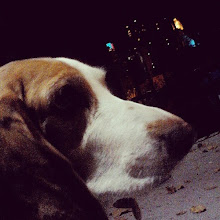Well hello again my 25-50 year old,
kinda sad, white friends. The Nobody Loves Us
countdown continues today.
If you
don't know what you're looking at right now, I've decided to
countdown my 20 favorite Morrissey Non-Singles each weekday until the
Mozfather's concert October 29th
at The Orpheum.
Here's what the
list looks like so far:
20. One Day Goodbye
Will Be Farewell
19. Driving Your
Girlfriend Home
18. Munich Air
Disaster 1958
17. Seasick, Yet
Still Docked
16. I Don't Mind If
You Forget Me
15. Sister I'm A
Poet
14. On The Streets I
Ran
Which brings us to #13 on the list:
Key Line:
“When we go, we all will go, so, you see, I'm
never alone...”
Calling Kill Uncle an “up-and-down” album is a little bit like describing coffee as “caffeinated” or my blogging style as “tedious.” It seems obvious. Still, the spotty album ends on a high with “There's A Place In Hell For Me And My Friends.”
After trying on many different hats over the course of the album,
Morrissey finds himself back in the same place that gave us songs
like “Please, Please, Please Let Me Get What I Want” and “I
Won't Share You.” While “There Is A Place” is not on par with
those classics, it does share the same structure (just some sparse
instrumentation and Mozzer's pleas) and the same bizarrely backward
optimism. It even punches in under 2:00.
Over what sounds vaguely like a church hymn, Morrissey seems prepared
to lament the fate awaiting him & his company. However, he
quickly makes it clear that the “place reserved for me and my
friends” is more badge than a banishment. “When we go, we all
will go...” is a line used to justify the way of living he's
undertaken. You see, he's not alone. Something akin to the old,
“50,000 Elvis fans” cliché.
This being Morrissey, of course, his biting English sense of
self-deprecation delivers the most memorable line of the song. “All
that we hope is when we go our skin, blood, and our bones don't get
in your way, making you ill, the way they did when we lived...”
There is no way Morrissey was taking his place in the underworld
without taking one last shot at those who took him for granted.
While
the song is a perfect closer for Kill Uncle,
a slight, understated moment on an album sorely lacking both. When
the track re-emerged a few years later in rockabilly form it seemed,
on it's surface, to be a bit of an injustice. Try to imagine a
rockabilly version of “Please, Please, Please...” or “I Won't
Share You.” Seems blasephemous, no?
(Quick
live sidenote: When I saw Mozzer in Chicago on the Ringleader
tour the show closed with an expanded, full band version of “Please,
Please, Please Let Me Get What I Want.” Now, that song is so good
that even a dubstep version of it would kill, but I was still left
with a bad taste in my mouth that such a perfectly fragile song could
be pounded into submission like that.)
And yet, I'm actually a big fan of the rockabilly version that appeared as a b-side to the My Love Life single. As I mentioned in the “Driving Your Girlfriend Home” post, my love of Mozzer stems from his ability to wrap that voice around a hook more than the actual lyrics in the hook. I feel like the braggadocio aspect of the song really shines through on this version. Listen to the way he elongates “bonneesss...” The seething is palpable. Anyway, I'm firmly in the “Rockabilly Version” camp. But that's just me.

